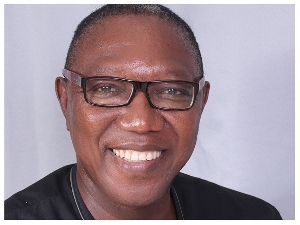Why are Ghanaian owned companies not necessarily thriving across Africa compared to mostly Nigerian owned companies? One may argue that, a number of factors account for Ghanaian businesses failure to expand on the African continent such as access to funds to expand, or probably the sufficient technical know-how to operate in such countries, but particularly attracting skilled management to oversee such projects and definitely not to say that Ghanaians are not good, but the question lies mainly with creating a lasting value that can be inherited by well-meaning visional managers.
Generally, the backbone of the success of every company lies with the management of scarce resources notably the liquidity of the supposed institution or firm, that is to say, the nature of the expenditure incurred by the firm in order to appropriately measure its income earned at the end of the period, so as to inform management how to further disburse the income earned or if losses were recorded, what to do to either increase revenue or cut down it expenses.
Typically analyzing the ‘true’ year end financials of Ghanaian owned companies, one may observe that, the expenses allocated to the directors are astronomical. A deeper inquiry for a breakdown into these expenses are mind blowing. For instances, aside the salaries which are normally not charged to this ledger or statement of account (directors expenses account/ledger), expenses noted as; salaries for individuals who are in no way linked to the company, payment of their children’s school fees, purchase of luxurious vehicles, purported loan to solve an impending issue at home, huge cost of repairs ranging from vehicles to fixtures and fittings and other equipment at home and quarterly allowances just to name a few.
Diving into the financial banking crisis which occurred from 2017 – 2019 and some early parts of 2020, to which over thousands of persons lost their jobs, and some customers feared the imminent loss of their deposits, which in the long run posed a threat to the financial sector of the economy, a probe was called for by majority of Ghanaians and individual regulatory bodies, and after the clean-up exercise to which a lot of banks were consolidated into one bank and other banks were absorbed into an existing bank, to save jobs and protect depositors funds, the Institute of Chartered Accountants – Ghana, fined four auditing firms GH¢ 2.2 million for various infractions committed while exercising due assurances on the financial position of the six of the collapsed banks. This move is the only concrete outcome after the cleanup exercise to punish persons for their negligence which led to the crisis but, perhaps, there should have been many more persons being charged for their respective roles in the crisis.
In July 2020, when the receiver, Eric Nana Nipa, who is a partner at Price Waterhouse Cooper (pwc) was interviewed by Peace FM’s Kwame Sefa Kayi, to inquire the progress of the task he was given when he was appointed the receiver, he noted many glaring difficulties he had encountered so far. For instance, he stated the assets reported by the banks on their financials were not physically present and some were in deplorable states to which he termed “poor asset quality”. This meant to some extent, the owners or directors deliberately misreported, and the receiver had stated that, he had contacted the Economic and Organized Crime Office (EOCO) to assist in tracing and recovery of some assets which were also in the name of the bank owners, and it was asserted the owners had purchased properties in millions of Ghana cedis both at home and abroad from diverted funds of the banks and these were part of the reasons for the banks poor performance and its insolvency.
Moreover, the receiver informed that, most of the transactions by the owners and directors of these financial institutions were fictitious, as many transferred depositor’s funds into their personal accounts, others diverted it to commence new businesses, also some used it to purchase luxurious properties and EOCO had prepared dockets to commence prosecution.
Sadly, that is how the Ghanaian owner has resorted to, and that when he is able to put up a meaningful business, his next line of action is to spend on luxury and not to expand thereby creating a lasting solution to economic problems faced in this country. Over my years as a finance officer, and having worked in various industries ranging from the distilleries to the logistics, and the downstream petroleum sector, and additionally having interacted with my colleagues in similar roles, persons who are former employees of these banks, listened to radio and televised discussions on these, it has generally become the norm with Ghanaian owners of companies, that this is a canker of which when not adequately tackled, would continue to pose significant threat to the economy. Indeed, the threat focuses on unemployment as these firms become insolvent and thus lay off their staffs, furthermore, the government loses revenue in the form of tax collection and a huge amount has to be spent on banking cleanup as being witnessed currently and the for that matter, depositors are unsafe with keeping their funds with these financial institutions as well.
Indeed, not to say that, these directors are not entitled to profits made from their investment, but one has to keep in mind that, after you generate revenue, you have to focus on paying your suppliers and all other statutory and regulatory payments imposed on such supplies and revenue earned, then after, you decide to spend the profit which advisably, pumped back into the business for further expansion.
I implore on the government of Ghana, and the various regulatory bodies such as the Bank of Ghana (BoG), the Ghana Revenue Authority, Domestic Tax Revenue Division, the Institute of Bankers and Chartered Accountants, and the various association bodies, to impress o their members and keep a tighter punishment for flouting rules, and concurrently, keep a threshold for directors spending. Also, prosecute owners for embezzle of funds all in the name of “I created the business so I have every right to spend however I see it fit tag”. The Companies Act 992, 2019, gives a derivative action to prevent directors from abusing their fiduciary responsibilities but then this becomes a problem when the shareholders are the directors of the company. This can be reviewed and expanded to include stakeholders such as employees a right of action to also hold its directors to account.
This will sustain, in the long run, sustain Ghanaian owned business which were borne out of entrepreneurial ideas, and contribute immensely to the economy to which every citizen has played his role thereby reducing the burden on the government. This will create a vast employment, and people can be able to pay their Pay As Your Earn (PAYE) taxes, the companies also pay their taxes, there is an increase in export to suffice the import and the country continues its quest to development.













